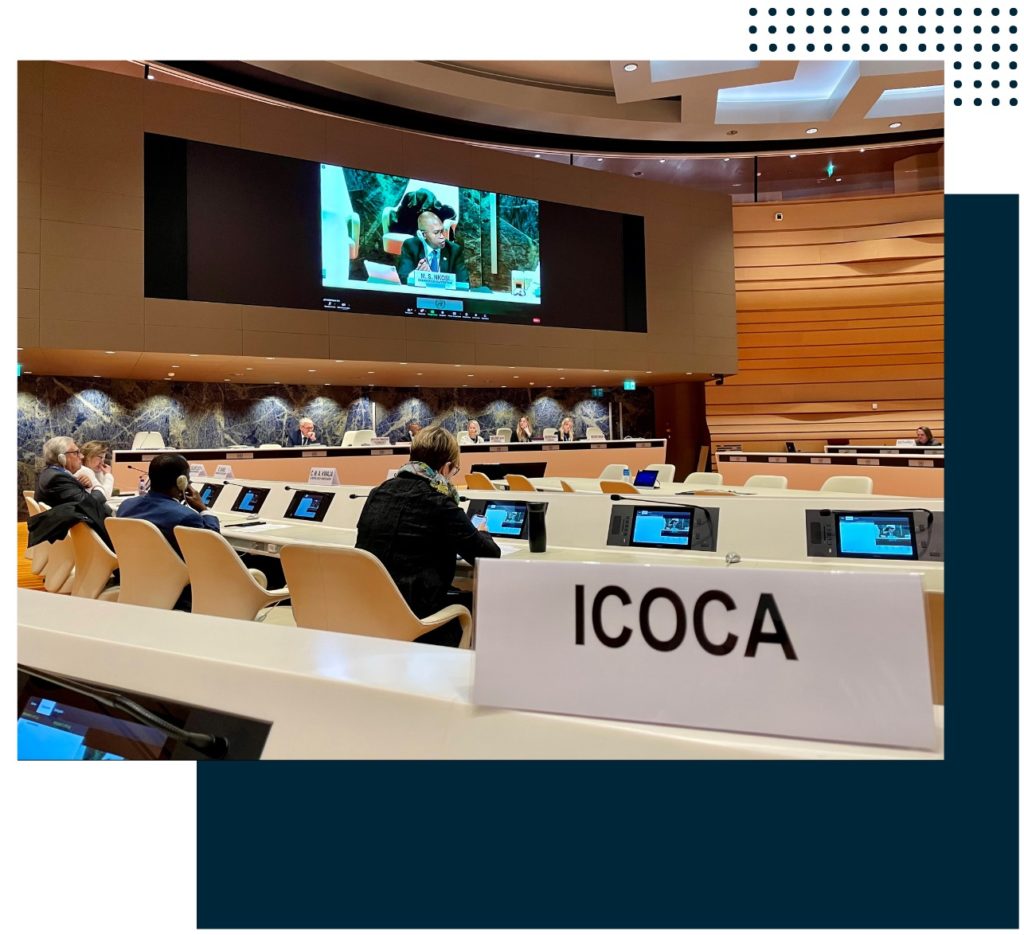AN OPPORTUNITY FOR SECURITY PROVIDERS TO LEAD BY EXAMPLE
In this article Jamie Williamson, Executive Director of ICoCA, navigates the global initiatives, challenges, and the imperative for proactive measures within the security industry, following ICoCA’s participation in the intersessional consultations of the United Nations’ open-ended intergovernmental working group to develop an international regulatory framework on the regulation, monitoring, and oversight of private military (PMCs) and security companies (PSCs).
We are witnessing increased attention being paid by the international community to the responsibilities and accountability of private military contractors and providers of security services the world over. This could stem in part from the highly publicised activities of the ‘Wagner Group’, and from cases against transnational corporations for human rights abuses by their security personnel. It could also just be a normal evolution in the level of public interest in the ‘security industry’, an industry today seemingly omnipresent in all walks of life.
National and international efforts are underway to strengthen requirements on the reporting on human rights due diligence in global supply chains. Given the risks associated with using sub-standard security providers, it is only natural to expect that international businesses will need to take a more rigorous approach to the vetting of their security set-ups (in-house or contracted). Something which, unfortunately, to date, has been lacking across many industry sectors.
 In parallel to these efforts, a UN Inter-Governmental Working Group, chaired by South Africa, has, since 2017, slowly but surely been developing a regulatory framework on the regulation, monitoring of and oversight over the activities of private military and security companies. ICoCA has been recognised as an expert organisation during these Working Group meetings.
In parallel to these efforts, a UN Inter-Governmental Working Group, chaired by South Africa, has, since 2017, slowly but surely been developing a regulatory framework on the regulation, monitoring of and oversight over the activities of private military and security companies. ICoCA has been recognised as an expert organisation during these Working Group meetings.
As the latest intersessional consultations ended this week, to which ICoCA participated, it is clear that there are still some fundamental disagreements on a number of issues, also referred to as lingering elephants in the room during the exchanges. These include the differences and overlap between ‘security services’ and ‘military services’, or on what constitutes ‘State functions’. Various perspectives have been evoked by Governments and NGOs about which actors, security or military, need to be regulated, and whether States can actually limit the ability of their nationals to work in security companies abroad, and if so under what circumstances.
However, there is a level of agreement amongst all on the existence of relevant obligations under International Human Rights and Humanitarian Law by which States need to reign in un-regulated private ‘military companies’ and security providers. There is no legal vacuum, as such, and soft law instruments such as the International Code of Conduct for Private Security Service Providers, the United Nations Guiding Principles on Business and Human Rights, and the Montreux Document, offer important guidance and standards in this regard.
No consensus has been found yet on whether the process will result in a legally binding or non-binding regulatory instrument. This will be up to States to resolve, and it may take a few more Working Group sessions to find a solution to this thorny issue. This delay may play into the hands of those individuals and entities who feel under little pressure to allow for more oversight of the security industry. But it would be mistake to embrace inertia in this field.
Irrespective of the final outcome on the nature of the instrument, I would argue that there are already plenty of steps security providers, their clients and governments can and should take to raise standards within the security industry and bring more accountability where abuses occur. One of these is simply a collective mindset change to truly recognise that it is a win-win situation for all concerned if bad security practices are weeded out of the industry. A positive role can be played by each stakeholder group. There is always room for continued improvement and more transparency.
It is in all likelihood a matter of when, rather than if, more robust international regulatory frameworks are adopted to strengthen oversight of private military contractors and security providers. Rather than waiting for new hard law to act, there is an opportunity for the security industry and their users to be ahead of the curve. Requiring higher standards across supply chains where security services are used and within the security industry itself makes good business and ethical sense. Having an international instrument spell this out should not be necessary to make this true.
